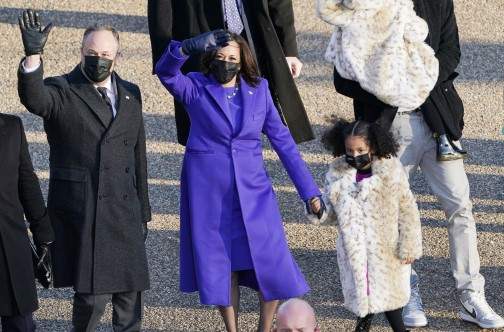Relatives of Kamala Harris in Brown’s Town, St Ann, reacted with humble elation yesterday as she was inaugurated as the first woman vice-president of the United States of America.
“We enjoyed watching the inauguration here at home. Our family in the US would have been invited, although I’m not sure that they actually attended.

“We are extremely happy for her, and we wish we could have been there, but under these circumstances, now wouldn’t have been the best time to be travelling. There were too many uncertainties with travel arrangement, so we wouldn’t have been able make it,” Newton Harris, a third cousin of Kamala told the Jamaica Observer yesterday.

Harris’s Jamaican roots sprout from Orange Hill, in Brown’s Town, where her father, Donald J Harris, was born and raised before emigrating to the US where he studied at Stanford University.
He later became the first African American to become professor emeritus of economics at Stanford.
“Success is nothing new to our family,” said Sherman Harris, Kamala Harris’s second cousin who spoke with the Observer yesterday at their family-run quarry in Orange Hill.
“We are very happy for her and we are sure that she will make a difference in her role as vice-president,” he added.
“The family was actually invited to the inauguration, too, but we didn’t go because we were not sure of our safety with COVID. But later we will be watching it at home. All of us will be watching,” said Sherman Harris.
Christina Harris, another distant cousin of Kamala said she hopes that her role as America’s first vice-president of Caribbean descent will make a difference for race relations in the United States.
“The Harris family is quite elated for Kamala. We believe that she will do a good job. I’m sure that she will represent her heritage very well, in the way that she deals with certain matters like race that will come up during her time at the White House,” said Christiana Harris.
Kamala Harris was sworn in front of the US Capitol by Supreme Court Justice Sonia Sotomayor. Later, she presided as Senate president for the first time to swear in three new Democratic senators, including her replacement.
The moment was steeped in history and significance in more ways than one. She was escorted to the podium by Capitol police officer Eugene Goodman, the officer who single-handedly took on a mob of Trump supporters as they tried to breach the Senate floor during the Capitol insurrection that sought to overturn the election results.
Harris was wearing clothes from two, young, emerging black designers — a deep purple dress and coat.
After taking the oath of office, a beaming Harris hugged her husband, Douglas Emhoff, and gave President Joe Biden a fist bump.
Her rise is historic in any context, another moment when a stubborn boundary falls away, expanding the idea of what’s possible in American politics.
But it’s particularly meaningful because Harris has taken office at a moment when Americans are grappling over institutional racism and confronting a pandemic that has disproportionately devastated black and brown communities.
Those close to Harris say she’ll bring an important — and often missing — perspective to the debates on how to overcome the many hurdles facing the new Administration.
“In many folks’ lifetimes, we experienced a segregated United States,” said Lateefah Simon, a civil rights advocate and long-time Harris friend and mentee.
“You will now have a black woman who will walk into the White House, not as a guest but as a second in command of the free world,” said Simon.
Her family joined her on stage as she took the oath and later during her procession to her new office building near the White House. She was led by her alma mater, Howard University’s marching band, and walked while holding the hand of her grandniece and alongside her husband, stepchildren, sister, brother-in-law and nieces.











